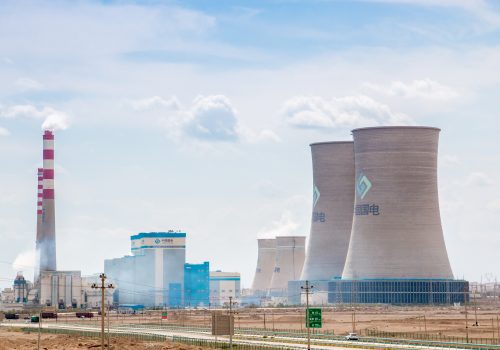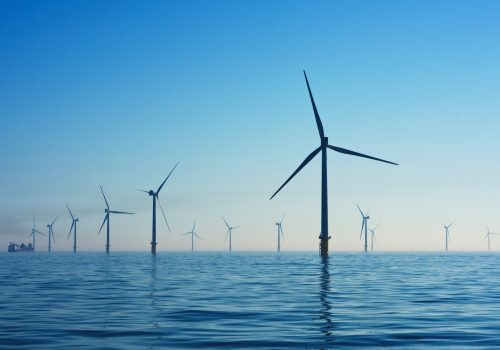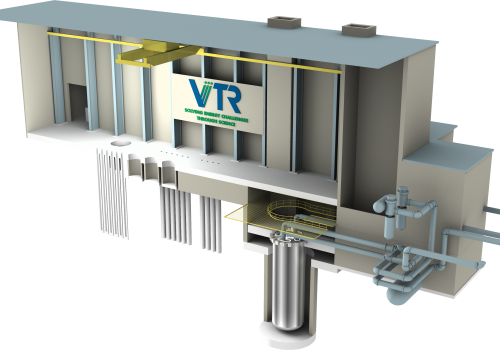The Atlantic Council—in collaboration with the Frontiers Project and in partnership with the Idaho National Laboratory and the Emerging Energy Markets Analysis Initiative (EMA)—is delighted to host an in-person meeting in Washington, DC, on Thursday, December 2nd, 2021, at 2:00 p.m. Eastern Standard Time. The Frontiers Project is an effort to organize a collective of think tanks, universities, and national labs to examine the economics, technology, and law that drive global demand for low-carbon energy and manufacturing.
There is a growing movement to merge climate and trade policy in economies that have committed to net-zero greenhouse gas targets by mid-century. The European Commission, for example, introduced a proposal in July to create a carbon border adjustment mechanism designed to both lower emissions and prevent leakage to countries with less rigorous environmental regimes. In the United States, the Biden administration has also signaled a willingness to establish a carbon border adjustment mechanism, an idea that might garner bipartisan support. Similar interest exists in Canada and Japan, suggesting that there is a possibility of the formation of a G7 carbon club. Given the market power of the G7 in global imports, this could establish a de facto international price on carbon. This would impact not only international market dynamics, but also influence domestic economic development tied to clean energy transitions.
Tying climate considerations to trade policy could also have repercussions for economies looking to reduce their reliance on nuclear energy. Replacing nuclear power with a mix of natural gas and renewables, for instance, may increase the carbon and critical materials intensity of their exports. Countries looking to increase their manufacturing competitiveness could thus become more dependent on nuclear power as an indispensable strategy in decarbonizing the power sector and advanced manufacturing.
The Atlantic Council promotes constructive leadership and engagement in international affairs by providing an essential forum for navigating the dramatic economic and political changes defining the twenty-first century. Through the papers it publishes, the ideas it generates, the future leaders it develops, and the communities it builds, the Atlantic Council shapes policy choices and strategies to create a more free, secure, and prosperous world.
The Atlantic Council follows CDC guidelines in addition to extra precautions to protect its staff and guests. As of November 22, 2021, in accordance with DC Health guidelines, masks are no longer required. All visitors to the Atlantic Council office at 1030 15th Street NW, Washington, DC 20005 must complete a COVID-19 symptom screening prior to entering the building (and no further than 24 hours in advance): https://atlanticcouncilrtw.powerappsportals.com/screening-questions/. If you have any questions about these guidelines, please contact the Council’s Chief Operating Officer, Julie Varghese.


